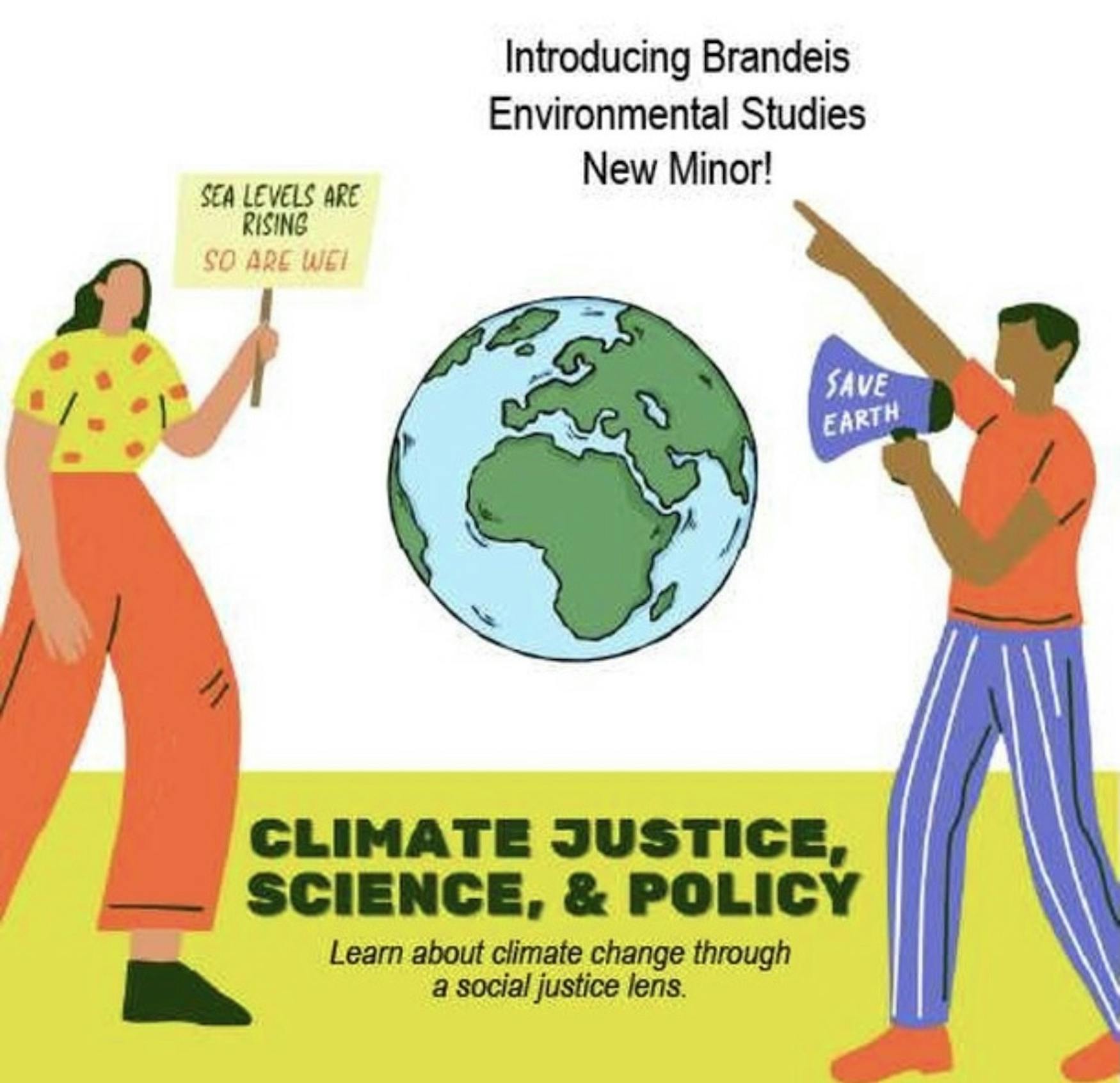Minor responds to “student interest and the Brandeis mission — ‘justice’”
The Justice interviewed the Chair of the Environmental Studies Program, Prof. Colleen Hitchcock, about the development of the Climate Justice, Science & Policy minor.
In a tumultuous past year, among hot button topics (a global pandemic, a national racial reckoning and an on-the-edge-of-your-seat presidential election), stories of natural disasters around the world dominated the daily news cycle feed. From the record-breaking wildfires on the West coast to the “monster hurricanes” on the East coast, climate change is one of the most devastating and urgent issues of our time. According to Prof. Colleen Hitchcock, Chair of the Environmental Studies Program at Brandeis, this is precisely the motivation behind the recent launching of a new minor called Climate Justice, Science & Policy. “This is going to be one of the biggest challenges students have to face as they go out into the world and having knowledge on the topic will be key to almost anything you might want to do,” Hitchcock said in a Zoom interview with the Justice on Monday, Sept. 13.
When asked about the evolution of the creation of the minor, Hitchcock explained that it was originally “the brainchild” of faculty members Prof. Charles Chester and Prof. Brian M. Donahue, who both proposed the idea a few years ago. But the minor, which was initially going to spotlight sustainability, pivoted to climate justice when Prof. Warner joined in fall 2020 as a full-time faculty hire. “With Prof. Warner as a full-time hire, we had an expert on climate science as a resource, with new courses to incorporate into the curriculum,” Hitchcock said. From there, the Environmental Studies Program was able to submit the minor proposal to the Undergraduate Curriculum Committee by the end of spring 2021, and it was approved this fall.
The Brandeis Environmental Studies Program centers on an interdisciplinary approach to the undergraduate curriculum. According to their website, this approach “expose[s] [students] to both the natural and social sciences, including ecology, physical sciences, economics, history and policy.” Hitchcock said an important step in the process of approval for the minor entailed combining insights from both the science and social science divisions at Brandeis. “You are getting both the science knowledge and relevant societal context and gaining the ability to relate that to policy action with the interdisciplinary aspect,” Hitchcock said.
Requirements for the minor, which can be found online, include five courses and one professional development activity:
- ENVS 39B Climate Change: Causes, Impacts, Responses and Solutions
- 1 Climate Social Science or Humanities Course (with a Justice focus)
- 1 Climate Science Course
- 1 Climate Policy Course
- 1 elective
- 1 Professional Development activity (PD opportunities could include climate justice or advocacy workshops, training or conferences)
“The idea behind the professional development activity is it’s an opportunity for students to connect with climate change issues outside of Brandeis — and not limit them to only what the curriculum provides. This also encourages students to network and build and develop relationships in the field,” Hitchcock explained. Hitchcock added that since it is often difficult to obtain an environmental internship for the applied learning experience requirement during their time at Brandeis, this would be a more accessible and flexible alternative to students.
“The minor is a direct response to student interest and the Brandeis mission — ‘justice’ being at our core,” she said. Environmental justice, as defined by the United States Environmental Protection Agency, is “the fair treatment and meaningful involvement of all people regardless of race, color, national origin or income with respect to the development, implementation and enforcement of environmental laws, regulations and policies.”
For Hitchcock, applying the “justice” part to this minor will give students the tools to make connections between climate change and society’s major equity problems and provide an opportunity to put their knowledge into action.
Brandeis is displaying a commitment to confronting contemporary environmental issues involving the University, and they are facilitating student participation in the dialogue. In fact, student representation through the Brandeis Sustainability Committee — a subcommittee of the president’s Task Force — sparked discussions about integrating climate-specific curriculum and student input starting last year. According to Hitchcock, “the student members of the committee helped review the minor, create its name and sent out a survey asking students for feedback.” This feedback was essential in the process of developing the requirements and course possibilities for the minor.
As chairperson, Hitchcock is hopeful in the growth trajectory for the new minor and the Environmental Studies Program in general at Brandeis. “We anticipate a high demand for this minor in the next few years because we’re facing the climate crisis together as a society — and we think it will be an attractive and expanding option for students, regardless of whether or not it is their primary field of study.”



Please note All comments are eligible for publication in The Justice.